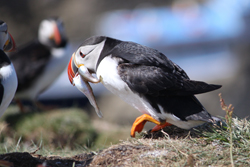Towards maintaining healthy aquatic ecosystems
The EU-funded Dipnet project was designed to integrate current knowledge on the transfer of pathogens between wild and cultured aquatic animal populations. A consortium of 12 participants addressed key issues required to ensure sustainability and responsible exploitation of aquatic environments. Firstly, an overview of current activities and methods in epidemiology and surveillance of infectious diseases in farmed and wild fish and shellfish was completed, and the results were presented in an open workshop. Existing diagnostic methods were characterised as poor, emphasising the need for more accurate and efficient means of pathogen detection in both farmed and wild fish populations. Project partners developed predictive modelling for aquatic animal health which was disseminated to potential users through an introductory risk assessment seminar. Dipnet results were communicated to stakeholders and the general public through a website, newsletters and international conferences. The project demonstrated the need to include disease interaction aspects into aquatic animal health risk assessments in the future. At the same time, it provided recommendations for fish health management and regulation in the European Commission based on sound scientific advice and future research priorities.

